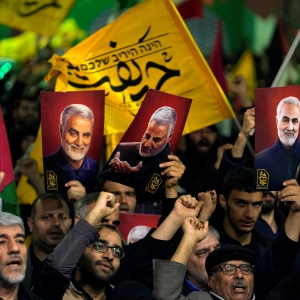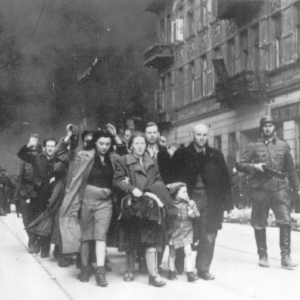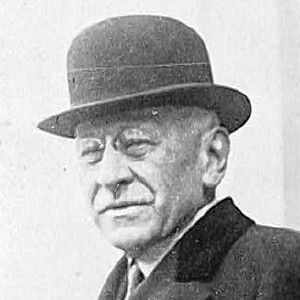Guest columnist Musbah Shaheen: Empathy needed to see others’ trials

mactrunk mactrunk
| Published: 12-09-2023 1:15 PM |
‘I feel scared being a Jew,” said my friend as we debriefed the war in the Middle East. As a Muslim who was raised in Syria and was fed from a very young age political anti-Israeli and antisemitic propaganda, I often refrained from commenting on the Israeli-Palestinian conflict.
When I do, people are often surprised, given the assumptions they make about my values and beliefs based on my ethnicity and religion. Can an Arab Muslim support Israel and its people without being labeled Zionist, or advocate for the rights and liberties of Palestinians without appearing antisemitic?
My friend is not the first Jewish person I talked to who expressed this fear of experiencing anything but empathy for Palestine. A lot of Jewish people are scared, and rightfully so. In the effort to humanize the Palestinians, a clearly vulnerable population, we cannot dehumanize the Israelis or disregard the ties that the Jewish diaspora has with Israel, its people, and its culture. Many Jews in America have family, friends, and spouses in Israel right now. Those people are scared too.
The uptick in antisemitic rhetoric and actions in response to the war in Gaza was expected. A case in point was the incident that occurred earlier this month at UMass Amherst. UMass Hillel organized a gathering titled “Bring Them Home: Solidarity Walk and Installation,” which featured a Shabbat table set with empty seats representing the 240 hostages taken by Hamas in the Oct. 7 attack.
At the conclusion of the gathering, one student began to make profane gestures and later assaulted another student holding an Israeli flag, then proceeded to steal and spit on the flag. Surely, that one person who assaulted the peaceful protest does not speak for any group, that be students or community members. But it does represent another manifestation of the existential dread that Jews must navigate as they live and work in this community.
The polarized nature of our reality makes nuanced perspectives radical. Arguments about the Jewish state and the relationship of the three Abrahamic religions to the area are as old as time. What appears to be happening, especially in hyper-liberal circles, is embracing the single-story approach to making sense of the world.
We’ve come to accept that there is only one single narrative that you can buy into to avoid being labeled part of the problem. But multiple realities could simultaneously exist. Many Jews have come out in support of the rights of the Palestinians to condemn the killing of innocent civilians. Many others have come out to mourn the loss of loved ones and to express a solemn response to a catastrophic war. We can call for the killing to stop while calling for the hostages to be released.
We should have empathy, but empathy should go both ways. We cannot empathize with the plight of the Palestinian people without empathizing with those who call Israel their home.
Article continues after...
Yesterday's Most Read Articles
 ‘Home away from home’: North Amherst Library officially dedicated, as anonymous donor of $1.7M revealed
‘Home away from home’: North Amherst Library officially dedicated, as anonymous donor of $1.7M revealed
 Super defers Amherst middle school principal pick to successor; one finalist says decision is retaliation for lawsuit
Super defers Amherst middle school principal pick to successor; one finalist says decision is retaliation for lawsuit
 Granby Bow and Gun Club says stray bullets that hit homes in Belchertown did not come from its range
Granby Bow and Gun Club says stray bullets that hit homes in Belchertown did not come from its range
 Connecticut man gets 8 years in Hadley shooting
Connecticut man gets 8 years in Hadley shooting
 Design Review Board in Amherst backs 5-story apartment project connected to old Hastings building
Design Review Board in Amherst backs 5-story apartment project connected to old Hastings building
 Political newcomer defeats Shores Ness for Deerfield Selectboard seat
Political newcomer defeats Shores Ness for Deerfield Selectboard seat
Young Jewish people, Israeli or otherwise, are struggling with sifting through the numerous stories that are being told in real time. The generational trauma that has been passed down in both Jewish and Palestinian communities is incomprehensible to those who have not been through the atrocities that both communities have experienced. Yet somehow, this assertion feels radical and surely will elicit radical responses from all sides.
As someone who studies how we learn to navigate interfaith relationships and attitudes, I can tell you that it all boils down to the ability to humanize people — to see them as full people with rights and liberties. Humanizing one group does not require dehumanizing another.
I am not condoning war. I am not condoning Israel, and I am certainly not condoning Hamas. I have lived through a war before. I know what it feels like when people come together to discuss your very existence with a political agenda. I do believe that opening our eyes to antisemitism is equally as important as opening our eyes to the plight of the Palestinian people and the humanitarian crisis, destruction, and death that seem to spare no one.
We need spaces for different narratives, different feelings, and different complexities to coexist. People, whether in Gaza, Israel, or western Massachusetts, should not live in fear. Can we at least agree on that?
Musbah Shaheen, Ph.D., is assistant professor of higher education in the Department of Educational Policy, Research and Administration at the University of Massachusetts Amherst. He can be reached at shaheen@umass.edu.

 Guest columnist Rudy Perkins: Dangerous resolution pins ‘aggression’ on Iran
Guest columnist Rudy Perkins: Dangerous resolution pins ‘aggression’ on Iran Richard S. Bogartz: What the ghosts of Warsaw Ghetto know
Richard S. Bogartz: What the ghosts of Warsaw Ghetto know Guest columnist Dr. David Gottsegen: Age issue not so key as question of marbles
Guest columnist Dr. David Gottsegen: Age issue not so key as question of marbles Guest columnist Martha Hanner: Spirit of philanthropy can uplift so many others
Guest columnist Martha Hanner: Spirit of philanthropy can uplift so many others